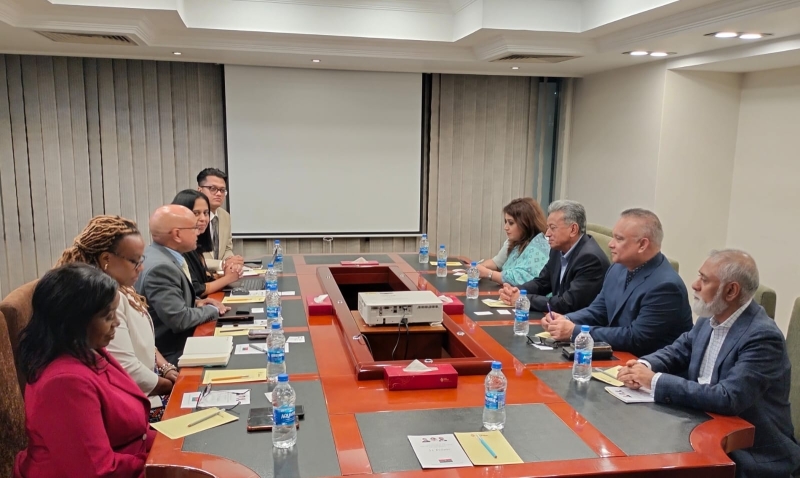- NCP Demands Impeachment, Arrest of President |
- PM Pledges to Modernise, Strengthen Border Force |
- Dhaka Tops Global Pollution List with Hazardous Air |
- Country Observes Martyred Army Day Today |
- 100 CSOs rally against Trump’s trade tactics, urge access to drugs |
Commonwealth to send election observers: Khosru

BNP leaders has a meeting with a visiting five-member Commonwealth delegation at a City hotel on Monday 27 Oct 2025.
Dhaka, Oct 27 - The Commonwealth has decided to send election observers to Bangladesh for the upcoming national election, BNP Standing Committee member Amir Khosru Mahmud Chowdhury said on Monday.
“We discussed the matter of sending Commonwealth observers. They have decided to send observers for the election,” he told reporters after a meeting with a visiting five-member Commonwealth delegation at a city hotel.
The delegation, led by Linford Andrews, Head of the Commonwealth’s Electoral Support Section (ESS) and Chief of its Pre-Election Assessment Mission, met the BNP team led by Amir Khosru Mahmud Chowdhury at a city hotel.
BNP Chairperson’s Advisory Council member Dr Zia Uddin Haider, Joint Secretary General Humayun Kabir, and Organising Secretary Shama Obaed were also present at the hour-long meeting that began around 6 pm.
Amir Khosru said the discussions mainly focused on the upcoming national election, democratic transition and the overall electoral process.
“The Commonwealth delegation wanted to know how Bangladesh is moving towards the election and what steps are being taken to ensure a free and fair vote,” he said.
The BNP leader said there was a detailed discussion on the idea of holding the election under a neutral arrangement similar to the previous caretaker government system, which, he noted, once had broad political consensus in Bangladesh.
“They wanted to understand the process of this democratic transition andhow we are preparing to return to a democratic order through elections, and how this can be done in an impartial way. Naturally, the issue of an election-time government came up. We discussed how an election under an arrangement similar to the caretaker system could ensure transparency and public confidence,” Khosru said.
He said the Commonwealth team also showed interest in supporting capacity-building initiatives to strengthen Bangladesh’s electoral institutions and democratic framework. “They shared their thoughts on how to build institutional capacity for the election process and democratic transition.”
Khosru said they also discussed law and order during the election period and the role of the Election Commission. “We made it clear that all election-related decisions must remain under the jurisdiction of the Election Commission, and that no decision outside the Commission should influence the electoral process.”
Responding to a question about the government’s statement that it will continue routine functions until a new government takes office, Khosru said they were not talking about forming a fresh caretaker government, but about creating an arrangement in its spirit so that the government functions like a caretaker administration.
“The caretaker system was introduced to address the crisis of trust among political parties. That crisis of confidence still exists, and only a neutral framework can restore people’s faith in the electoral process,” he said.
The BNP leader said the Commonwealth team also inquired about how the July Charter will be implemented. “We told them the July Charter has broad support. But there are some areas where a few parties have expressed disagreement by giving notes of dissent.”
He also said these differences will remain recorded on their respective websites so that people are aware of them.
“Whichever party comes to power with the people’s mandate in the next parliament will implement the points on which consensus has been reached. As for the areas of dissent, the party in power will decide how to address or implement those according to their position,” Khosru added. - UNB

